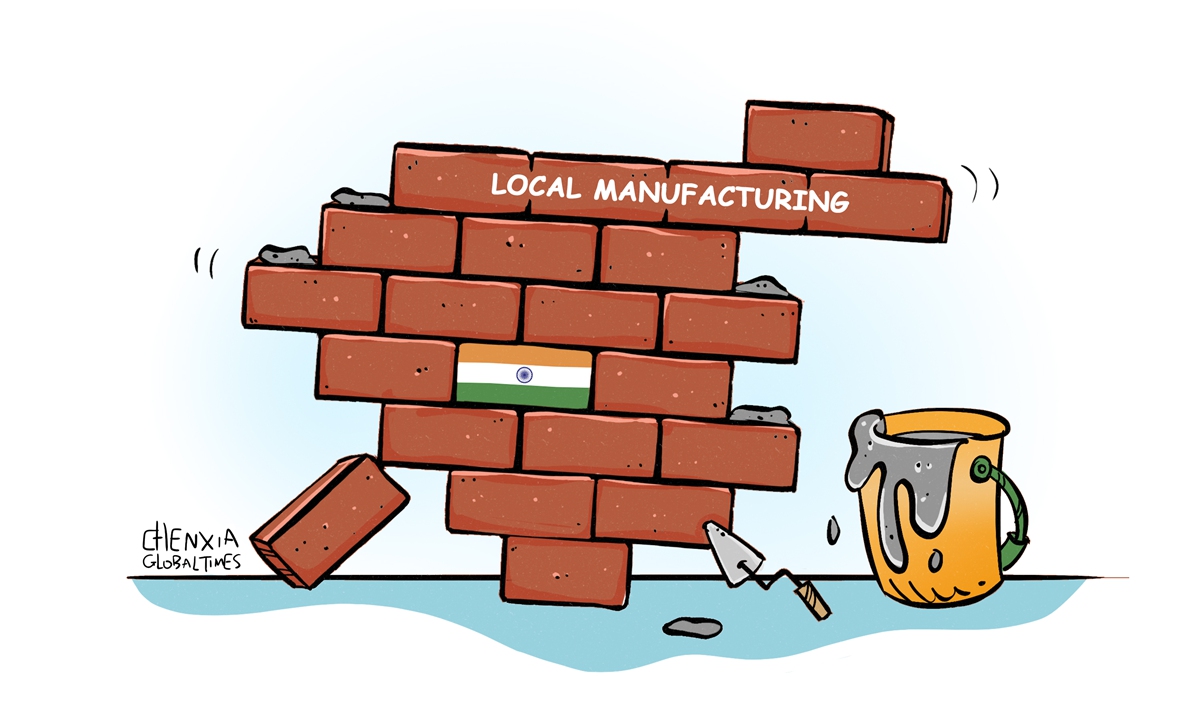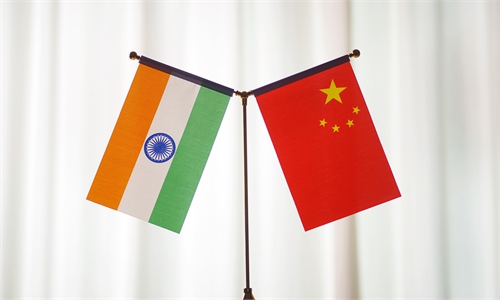
Illustration: Chen Xia/Global Times
At least 32 international electronics companies have applied to India's incentive program to make laptops, tablets and servers in the country, Information Technology Minister Ashwini Vaishnaw said on Wednesday, just weeks after the government announced controversial restrictions on laptop imports, Reuters reported.The Modi government is rushing to proclaim the preliminary effects of measures like the incentive program and an import ban, which are widely seen as further steps along the wrong road of protectionism. But New Delhi needs to remember that in a highly globalized era, protectionism won't help India realize its ambitious goal of boosting domestic manufacturing capacity under its "Make in India" initiative.
As part of its effort to transform India into a hub for electronics production, the country said in August that it would impose a licensing requirement for imports of laptops, tablets and personal computers. Although India agreed to postpone the deadline for imposing restrictions to November 1, the abrupt move still caused confusion and drew complaints from market participants.
The Indian government also announced a $2 billion production-linked incentive program for information technology hardware in May, aiming to attract international electronics companies to set up production lines in India and develop local manufacturing capacity.
India's information and technology minister said on Wednesday the 32 foreign companies had applied for this incentive program. But there are many uncertainties related to the program, which will reportedly be implemented over six years. While 32 companies have shown initial interest, that's far from enough to boost local manufacturing.
Market observers believe that India is trying to replicate its earlier policies in the mobile phone industry. Its template is to first attract foreign companies to India, and then hope that they will drive the development of local industry. Yet, after India attracted Chinese companies to promote the development of its mobile phone industry, it took various suppressive measures against Chinese companies to protect Indian companies.
In the past few years, Chinese mobile phone companies have suffered all kinds of unreasonable suppression in the Indian market, and India's practice of "killing the goose that lays the golden eggs" is no longer a secret. As India pursues similar practices in the notebook and other electronic product industries, it's likely to bring more worries to foreign companies than appeal.
India is brimming with confidence in achieving its goal of becoming an electronics production center with a contract value of $300 billion by 2026 through protectionist measures. That's mainly because India believes that its plan caters to the US-led geopolitical drive to rebuild new supply chains that exclude China. India hopes to take advantage of this geopolitical game played by the West to seek the best interests of its economy and industry.
What India doesn't want to acknowledge is that the division of labor in globalized production has formed an irreversible trend. Political and artificial interference and disruption by the US cannot shake China's status as the world's manufacturing center. Therefore, protectionism that goes against the trend of globalization is bound to fail. This lesson can be learned from experience in India as well as the US.
For instance, it has been more than one year since the US started to implement a $52.7 billion package to boost local semiconductor manufacturing. According to recent media reports, semiconductor manufacturers are still waiting for the subsidies the incentive program promised. The US aim to reshore the semiconductor supply chain is going nowhere.
If India wants to realize its manufacturing ambitions and improve its ability to make electronic products, it must respect the existing division of labor and cooperation in the global industrial chain. Only by effectively improving its business environment and implementing a more open industrial policy can India achieve its manufacturing ambitions. It is unrealistic to bypass China and boost India's domestic manufacturing.
The author is a reporter with the Global Times. bizopinion@globaltimes.com.cn



